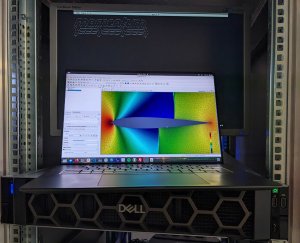Software

Within the wider scientific community it has become a self-evident new paradigm that any scholarly publication that presents results based on software must make its research code freely available. The open code development of computational software enhances its value, fosters a collaborative environment, and accelerates scientific progress. This openness also ensures a level of transparency and reproducibility that is essential for the scientific method.
Our Research Software Activities
For a first-order summary on open-source projects we are involved we refer you to the Repository overview of our organization on GitHub.
Especially noteworthy codes that have received notable contributions from members of our institute are
- fenicsR13: A Tensorial Mixed Finite Element Solver for the Linear R13 Equations Using the FEniCS Computing Platform
- NumericalFlowIteration: A numerical solver for the kinetic, non-linear Vlasov-Poisson system arising in the context of high temperature plasmas assuming the collisionless, electro-static limit
- Trixi.jl: Adaptive high-order numerical simulations of conservation laws in Julia
